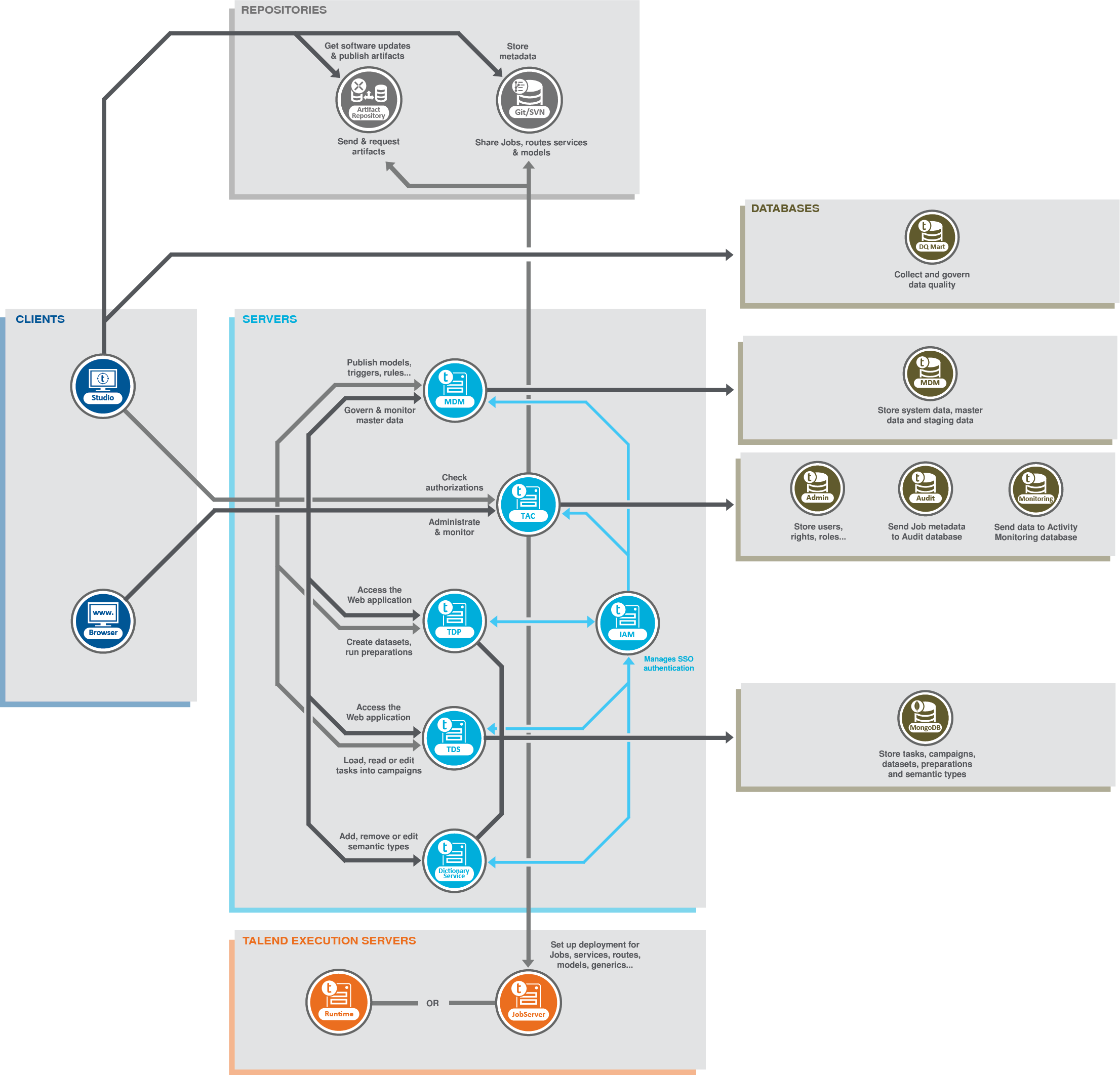Functional architecture of Talend MDM Platform
The Talend MDM Platform functional architecture is an architectural model that identifies Talend MDM Platform functions, interactions and corresponding IT needs. The overall architecture has been described by isolating specific functionalities in functional blocks.
The following chart illustrates the main architectural functional blocks.

The different types of functional blocks are:
- The Clients block includes one or more Talend Studio(s) and
Web browsers that could be on the same or on different machines.
From the Studio, you can set up and operate a centralized repository. You can build data models that employ the necessary business and data rules to create a single copy of the master data. This master data will be propagated back to target and source systems.
From the Studio, you can also use predefined patterns and indicators to analyze data stored in different data sources, browse and query analysis results and remove corrupt, incomplete or inaccurate data.
From the Web browser, you connect to:
- the remotely based Talend Administration Center through a secured HTTP protocol.
- the Talend MDM Web UI to search, display or edit master data with tasks defined by the Studio.
-
the Talend Data Preparation Web application, where you import your data, from local files or other sources, and cleanse or enrich it by creating new preparations on this data
-
the Talend Data Stewardship Web application, where campaign owners and data stewards manage campaigns and tasks
-
optionally, the Dictionary Service server to add, remove or edit the semantic types used on data in the Web applications.
- The Server block includes:
- an MDM server, where the master data and the staging data is governed and monitored.
-
servers used by the Talend Web applications, namely Talend Data Preparation, Talend Data Stewardship and Talend Dictionary Service, and the Identity Access Management server which is used to enable Single Sign-On between those applications.
- The Databases block includes the MDM database, where the master data, the staging data and the system data is stored.
